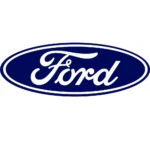In a strategic move to broaden its global manufacturing footprint, Taiwan’s United Microelectronics Corp. (UMC) has joined forces with Intel, marking a significant step into the U.S. semiconductor production arena. This partnership, designed to leverage the strengths of both companies, focuses on the development and contract production of 12-nanometer chip technology at Intel’s Arizona facilities. With mass production slated for 2027, this collaboration targets applications in communications and other technology sectors.
UMC Co-President Jason Wang emphasized the partnership’s strategic importance at an Intel event in California, highlighting the expanded market reach and accelerated development timeline this collaboration brings. This move comes at a time when the global semiconductor industry is witnessing a distinct segmentation between cutting-edge and mature chip technologies. The latter, essential for a range of applications from automotive to consumer electronics, has seen heightened demand, especially amidst the global chip shortage.
Intel’s strategic pivot towards contract manufacturing signals its intent to directly compete with giants like TSMC and Samsung Electronics in the semiconductor space. This is further bolstered by substantial U.S. government subsidies, including a recent $8.5 billion incentive for Intel’s advanced chip development efforts. By focusing on mature chip technologies through its partnership with UMC, Intel aims to allocate more resources towards next-generation semiconductor advancements.
For UMC, this collaboration not only signifies a leap in technological capabilities but also a critical expansion of its manufacturing presence into the U.S. market. As the industry continues to navigate the geopolitical and supply chain complexities, this partnership represents a crucial step in diversifying global semiconductor production capabilities. With TSMC also ramping up its U.S. operations, the semiconductor landscape is set for a significant reshaping, underscoring the strategic importance of mature chip technologies in the broader tech ecosystem.






